M. Night Shyamalan's twist endings, ranked (and spoiled)
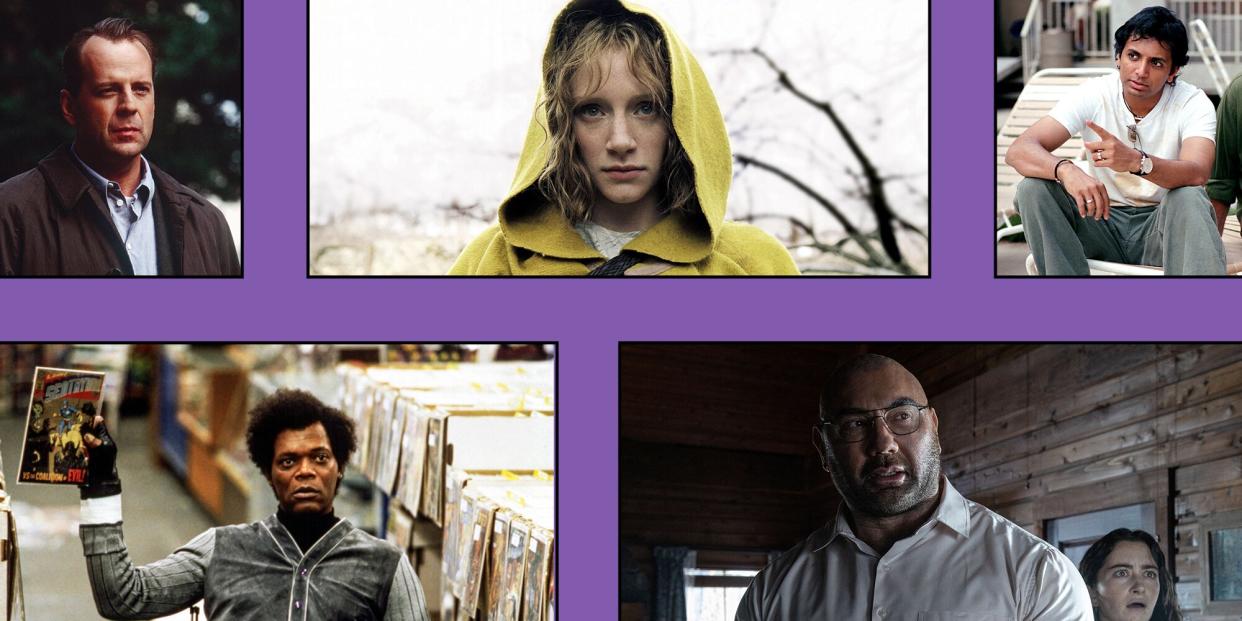
- Oops!Something went wrong.Please try again later.
- Oops!Something went wrong.Please try again later.
- Oops!Something went wrong.Please try again later.
- Oops!Something went wrong.Please try again later.
Warning: This article contains spoilers for several of M. Night Shyamalan's movies.
With The Sixth Sense, M. Night Shyamalan set an impossible standard for himself, one he'd have a hard time matching. The 1999 minor-key supernatural thriller about a sad man and a scared kid grossed a very un-sad $673 million. The clever script made for a must-rewatch phenomenon, so I don't even need to say spoiler alert before I explain why Bruce Willis's psychologist can't open doors.
But today we're spoiling all Shyamalan's movies, because that ghostly twist launched a career built (and occasionally broken) by final-act surprises. The promise of mind-blowing plot turns made him a blockbuster brand, then edged quickly into self-parody. After losing some years making studio crud, the director revitalized himself by downshifting into a new low-budget horror groove. Shyamalan endures. Nearly a quarter century after The Sixth Sense, Knock at the Cabin just topped the box office.

Everett Collection
His endings can be amazing, ridiculous, or both. At his best, Shyamalan seems to be making two movies at once, hiding a secret story in plain sight. Sometimes, though, the narrative trap doors swallow their films entirely, fizzling out exciting tension into unlikely machinations and strident speeches. Where does Knock at the Cabin sit alongside the hits, flops, and cult oddities? Read on.
11. <i>Signs</i> (2002)
Witnessing a global invasion from the perspective of a Pennsylvania farm, Signs blends post-9/11 tension with wry family dynamics and bursts of comedy. Alas, Signs is the mostly-great movie people only remember because the aliens are allergic to water. This unlikely revelation (isn't Earth mostly water? also humans?) works on no levels, turning a subtle portrait of grieving agnosticism into an outright sermon: Trust your dead flashback wife to prophesize an alien defense strategy. It was the first twist that felt like shtick, not least because it came right after another Shyamalan movie where water is somebody's kryptonite.
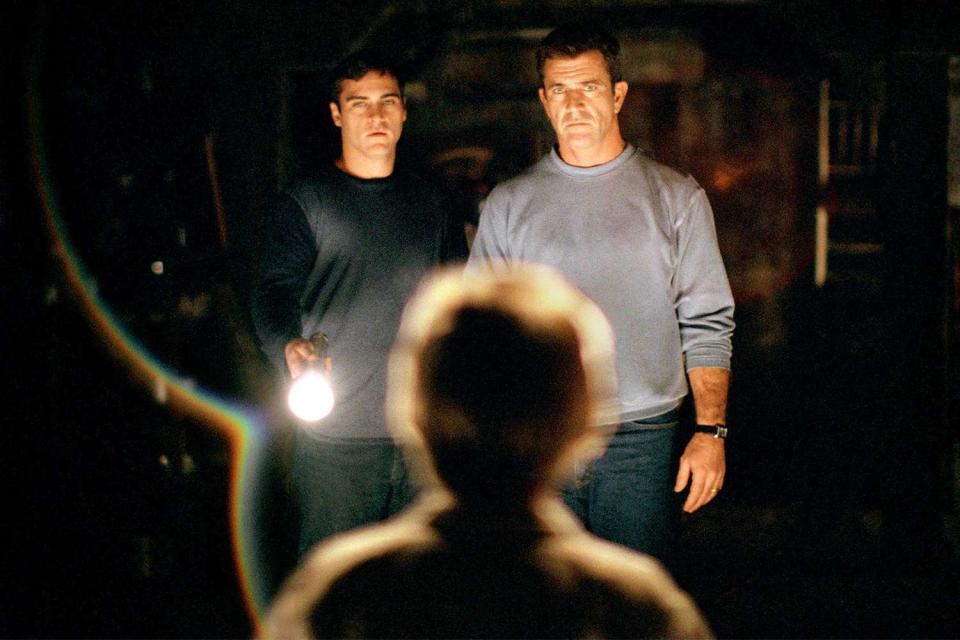
10. <i>Lady in the Water</i> (2006)
Many of the writer-director's twists are literal endings, but some zigzags come earlier, launching the final act in an unexpected direction. That's sorta what in happens in this 2006 apartment-building fairy tale, starring Paul Giamatti as a niceguy superintendent who finds a magical nymph (Bryce Dallas Howard) in the swimming pool. Some tenants are contemporary avatars for the woman's mythic defenders. Except they're not her defenders, some other neighbors are: Whoops! More funny than annoying, still better than Signs' Joaquin Phoenix pummeling an alien with a baseball bat.
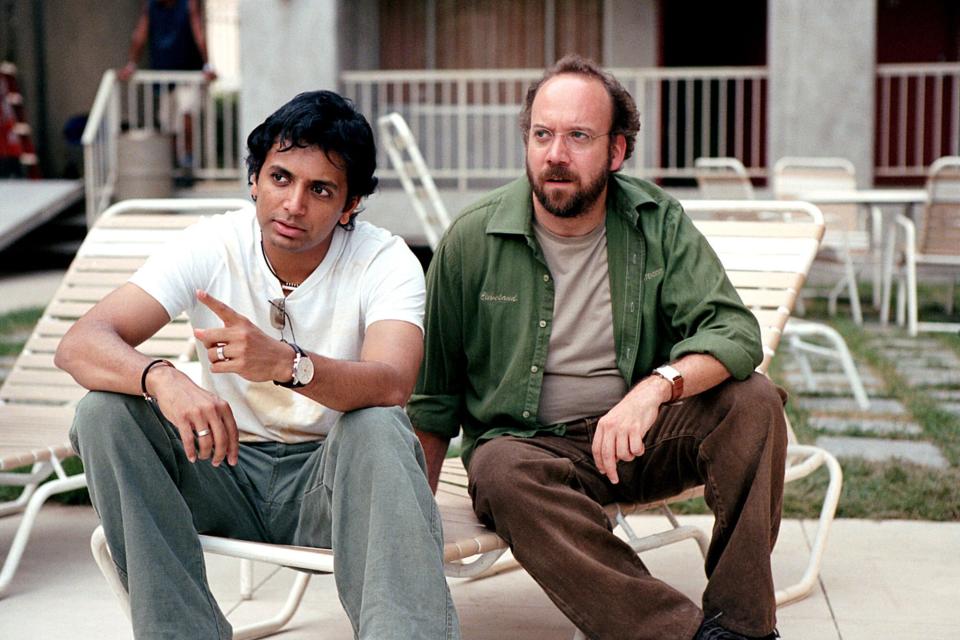
9. <i>Old</i> (2021)
A film that dares to ask: How is this totally insane thing happening? then dares to answer: Because a well-funded conspiracy has an impossible plan full of plot holes. Shyamalan's breezy beach-horror fantasy is a standout vacation-bubble thriller from the COVID era, trapping a dynamite cast on a stretch of coast that ages everyone two years per hour. The moody source comic, Sandcastle, didn't bother with a why. The adaptation overexplains like mad. Turns out a pharmaceutical company uses the beach's cell-deteriorating rock formations to conduct off-book medical trials, fitting decades of biological observation into unwilling subjects' rapidly-declining final days. The only victims to escape swim through offshore coral, which somehow blocks the rocks' blackout-inflecting mental force field. Not the first Shyamalan film where the twist is the worst part, not the first Shyamalan twist that depends on an elaborate covert organization.
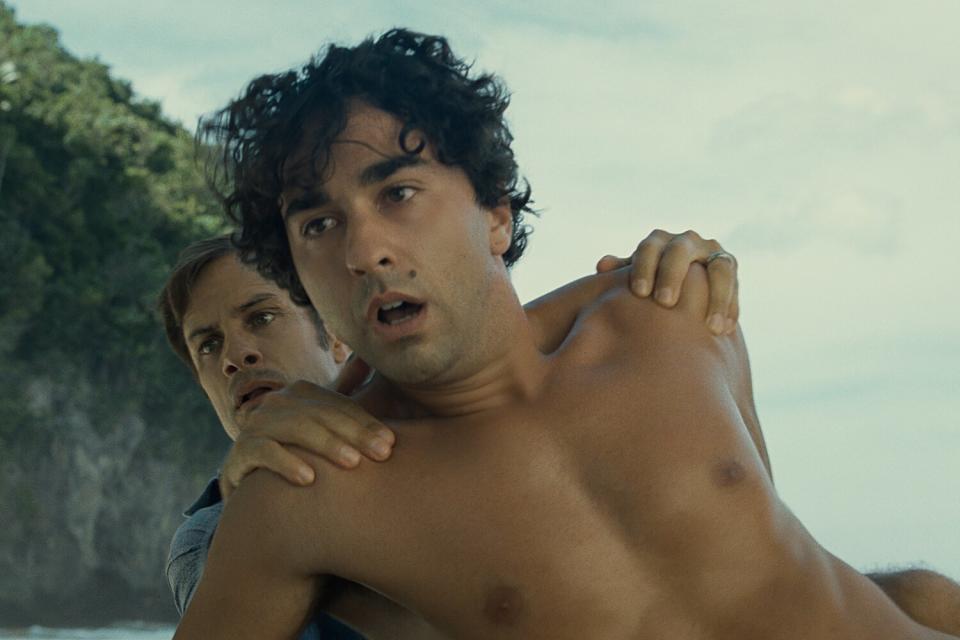
8. <i>The Happening</i> (2008)
You could argue that this bad-acting feast doesn't really have a twist ending, since Mark Wahlberg's doofy science teacher figures out that plants (plants!) are pumping the air full of suicide toxins before the one-hour mark. But killer plants are always fun to talk about, especially when they eventually just stop killing for no obvious reason. Given how sappy these other movies can turn out, The Happening earns points for embracing chaos, and environmental vengeance certainly hasn't gotten less timely.
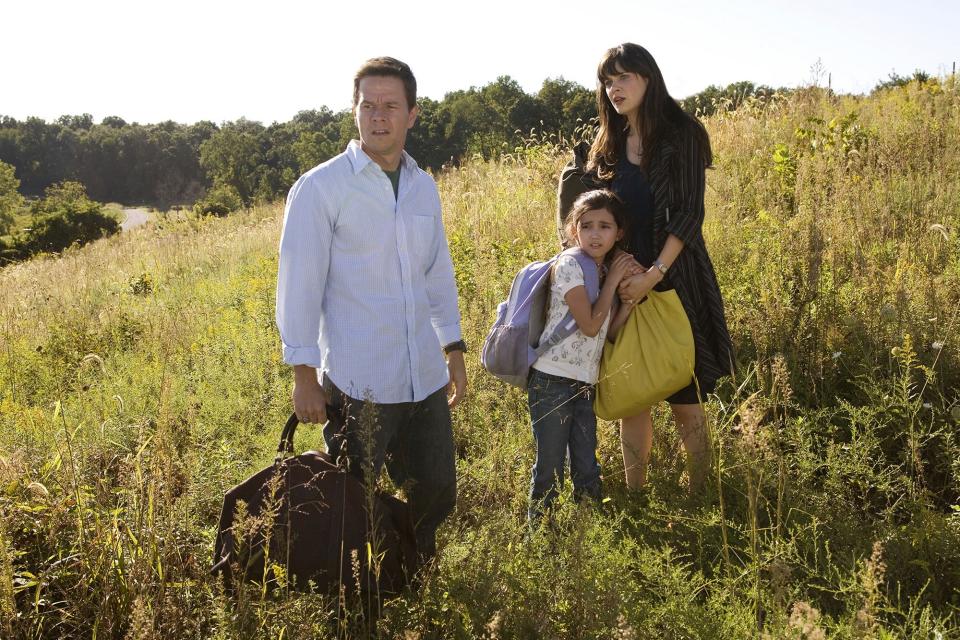
7. <i>Knock at the Cabin</i> (2023)
If Dave Bautista spends a movie saying the apocalypse is going to happen, is it really a surprise when the apocalypse happens? The buff melancholiac headlines Shyamalan's latest as Leonard, an oddly endearing home invader who holds a vacationing family hostage. He offers a dark warning: One of them must die, or humanity will perish. As with Old, this adaptation of Paul Tremblay's The Cabin at the End of the World replaces its source material's brutal ambiguity with a stridently un-ambiguous final act. All Leonard's prophecies come true via goofy falling-plane CGI, which leavens the stakes of the final spousal homicide; everyone involved pretty much knows their sacrifice will save the world. Give Knock at the Cabin credit for masking Armageddon behind an impressive slow burn, lingering on the possibility that Leonard and his compatriots could be internet maniacs or devious plotters. It's secretly a darker riff on Lady in the Water: Regular people find themselves a divine mission, but now there's no triumphant magic eagle, and most everyone dies nasty.

6. <i>Glass</i> (2019)
Shyamalan built a backdoor franchise out of 2016's Split. I obviously prefer that twist, but for sheer self-destructive filmmaker bravado, I applaud how this 2019 follow-up subverts any epic-saga catharsis. Bruce Willis' Unbreakable strongman and James McAvoy's Split murderer get imprisoned alongside Samuel L. Jackson's titular antagonist, who spends half the movie in an apparent fugue state. Their peculiar warden is Sarah Paulson's psychiatrist, whose methods, legal authority, and motivation make no sense. After teasing a battle at Philadelphia's tallest skyscraper, all three men wind up dead after a scuffle in the mental hospital's parking lot.
That downbeat finale could reflect reduced circumstances. (Glass was reportedly self-financed by Shyamalan to the tune of $20 million, $53 million less than Unbreakable's budget from several inflation cycles ago). There's nothing modest about the finale, though. Deep breath: Paulson's shrink represents a vast global conspiracy that has spent, like, all human history snuffing out superpowered individuals. Those rug-pullers get their own rug pulled. The late Mr. Glass releases footage of the superfight via posthumous video dump. That footage maybe ushers in a new era of global super-people? Oh, and the Unbreakable trainwreck also killed the father of McAvoy's disordered baddie. In some ways this ending kneecapped its own movie, trapping vibrant personalities in a long wind-up to a deconstructive Illuminati-infused tale. ("Oh, mama," says the dying Mr. Glass, "This was an origin story the whole time.") Sheer volume of WTFery makes Glass special, even if the heroic glow it gives Jackson's mastermind seems to retroactively justify his mass murders. It doesn't have the best twists, but it has the most of them.
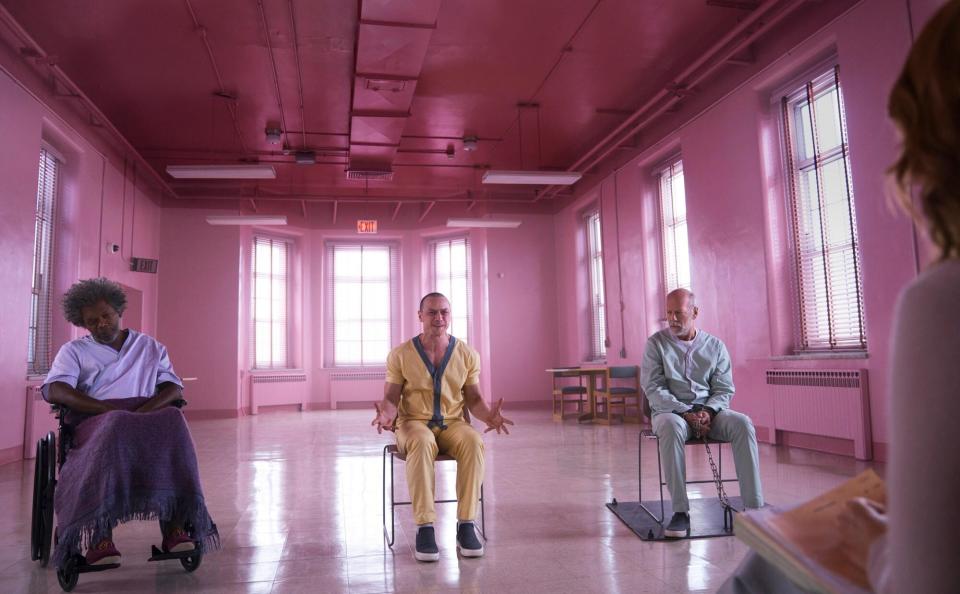
5. <i>Split</i> (2016)
This could have just been a proto-Knock at the Cabin, where a seemingly-unhinged person (in this case, McAvoy's identity-plagued Kevin) promises something insane will happen, and then it actually happens. I don't think anyone watching Split in 2016 was surprised by the Beastly transformation, which sets up a solid-enough face-off with kidnapped teen Casey (Anya Taylor-Joy, final girl-ing her way to superstardom.) But the epilogue featuring Willis' David Dunn stands as one of the great continuity sucker punches of the cinematic-universe decade. I know people who think the Unbreakable connection turned a fine singular movie into a grasp toward fan service. That opinion is valid; I disagree. Happiness is Bruce Willis sipping coffee in a diner with a sequel-baiting glare in his eyes.
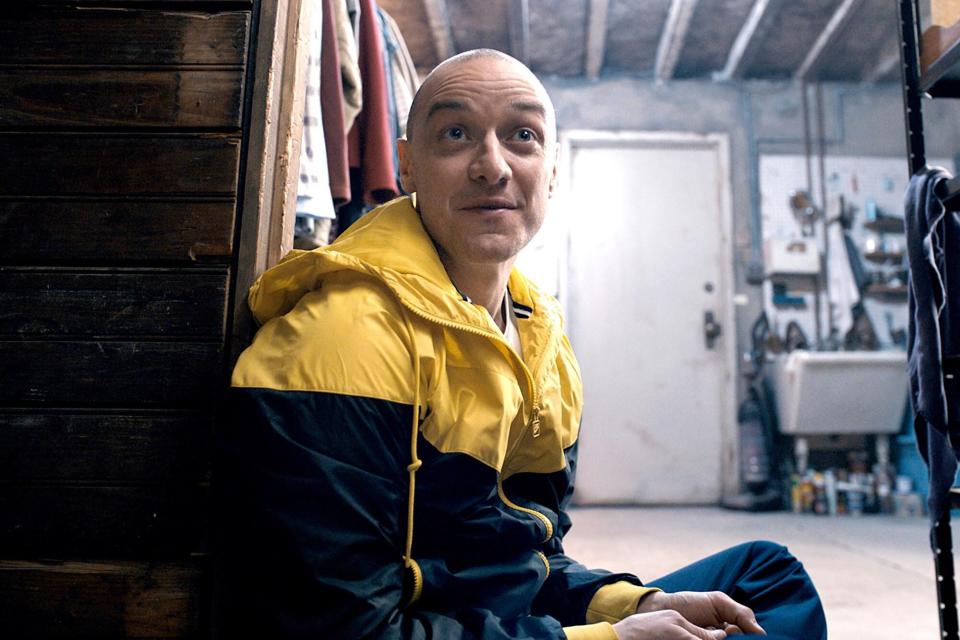
4. <i>The Village</i> (2004)
This colonial fable about a remote community tormented by monsters initially seems to be one of Shyamalan's "Act 3 Twist" movies, when Bryce Dallas Howard's blind Ivy finds out the malevolent forest creatures are actually the settlement's elders in disguise. Then she journeys through the woods… and finds out she's actually in a "Twist Ending" movie. Ivy's early-American existence is a lie, dreamed up by anxious '70s parents who opted to raise their children in a simulacrum of a safer past. Defenders peg The Village as a lacerating tale of American self-delusion and nostalgia cresting into horror. Personally, I think the film's a well-photographed bore, and I will always treasure how loudly my 2004 theater audience laughed when the car showed up. The village's hermetic existence makes precisely as much sense as Old's rock-blocking coral, but here the illogic adds to the movie's appeal, making the mannered performances and stately aesthetic look retrospectively hysterical. I don't buy the allegory, but I'll take the hot mess.
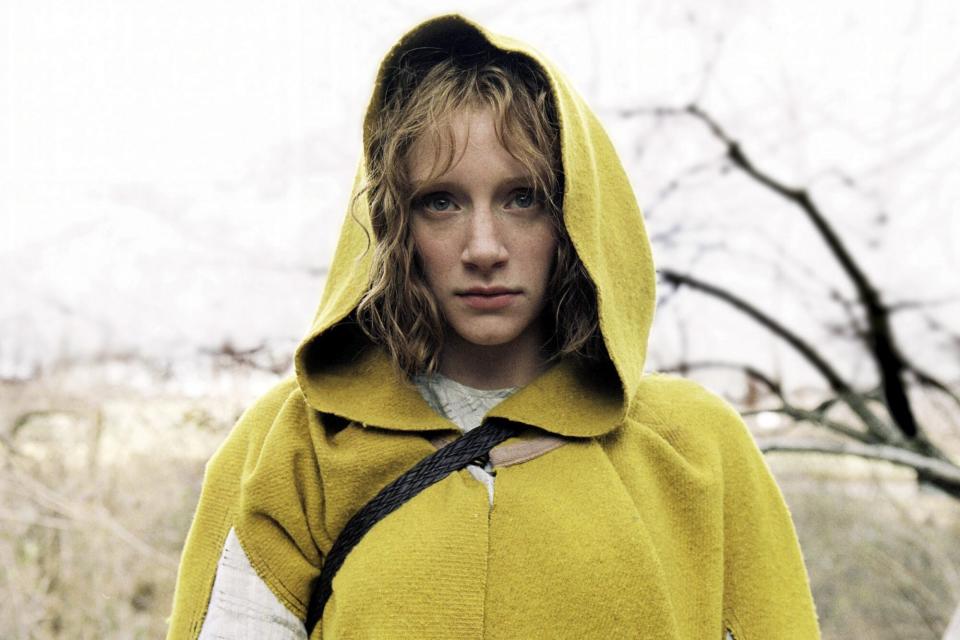
3. <i>The Visit</i> (2015)
Two teens visit their grandparents. After a very strange week, it turns out their grandparents are not their grandparents. That's it. No conspiracy, no speeches about fate or faith. The nice people are murderers who must be stopped. This brisk found-footage thriller was the director's comeback, and its financial success offers a critical lesson. K.I.S.S.: Keep It Simple, Shyamalan.
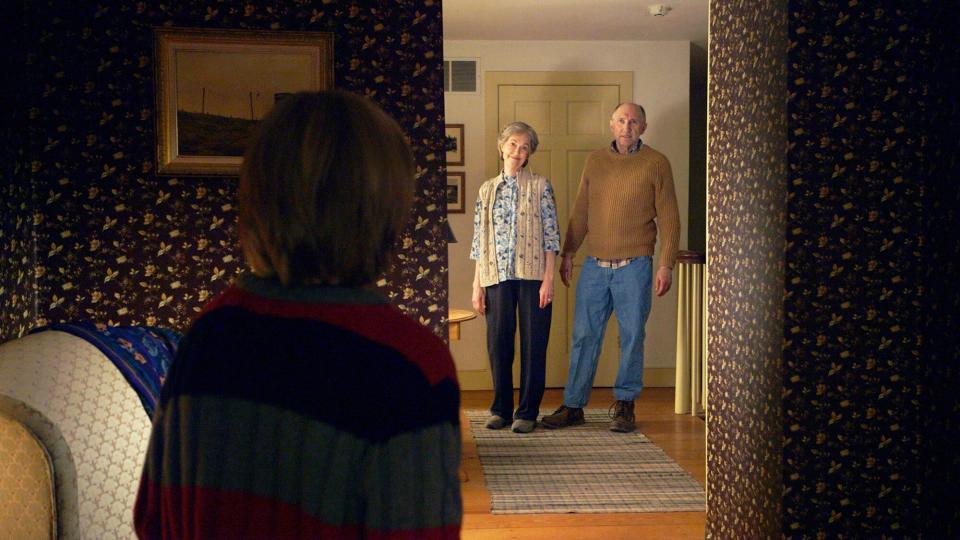
2. <i>The Sixth Sense</i> (1999)
In some ways this wonder is unrecoverable. The first scene introduces psychologist Malcolm Crowe (Willis) in a moment of crisis when he's shot by a former patient (Donnie Wahlberg). Some vague amount of time later, Malcolm starts working with young Cole Sear (Haley Joel Osment), who sees dead people. Sometimes Malcolm has problems with a red doorknob. His wife (Olivia Williams) is so distant she literally never talks to him. These would all become instant alarm bells for savvy audiences as films like Fight Club, Memento, Donnie Darko, Vanilla Sky, Mulholland Drive, and Identity turned what-is-reality brainteasers into cinephile's new normal. (A grinch could complain that Jacob's Ladder approximated Sixth Sense's finale way back in 1990.)
But Sixth Sense works even if you know Bruce Willis dies in the prologue. The performances by Willis, Osment, Williams, and Toni Collette thoughtful, matched by Shyamalan's patient storytelling. Malcolm's final speech to his wife is Shyamalan's deftest emotional turn and some of Willis' finest acting, immediately transforming a man's shocking realization of his own death into a powerful portrait of lost love and existential acceptance. It's the perfect twist from an era before audiences looked for twists behind every corner, and a high point for Shyamalan's instincts for climactic soaring emotion. But it is not his best twist ending.
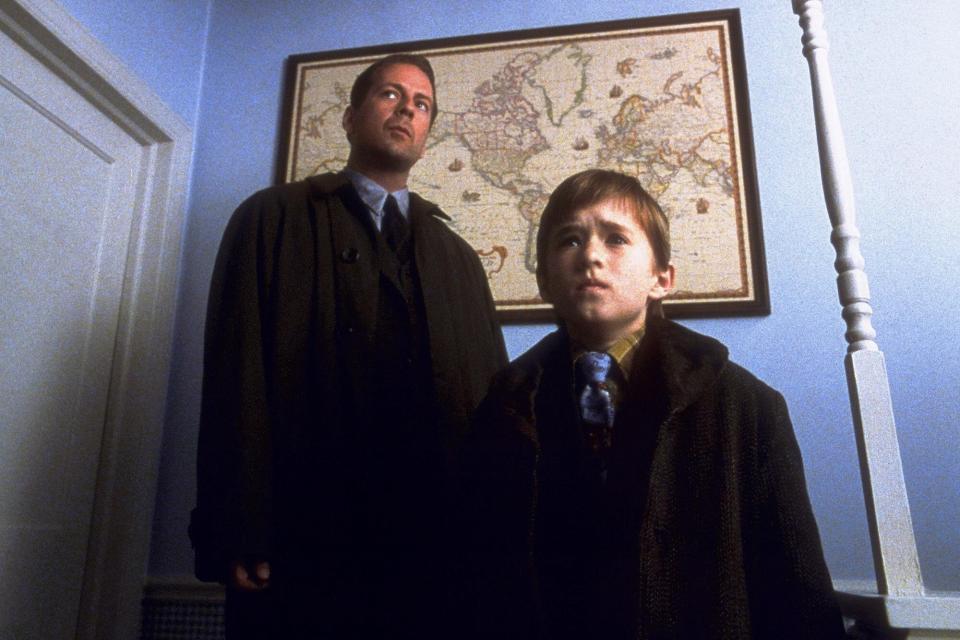
1. <i>Unbreakable</i> (2000)
You have to remember Shyamalan didn't need to become the Twist Guy. After The Sixth Sense, audiences who showed up for the director's reunion with Willis weren't necessarily expecting a shocker final revelation. They got an eccentric human-sized thriller about David Dunn, the sole survivor of a train wreck. As brittle-boned superhero theorist Elijah Price, Samuel L. Jackson made an outspoken contrast to Willis' hushed performance. For about 90 minutes they seem like an especially odd couple of eventual friends, as Elijah spends the movie coaxes David to realize the potential of his powers of superstrength and touch-based telepathy.
Then comes the final scene. Elijah shakes his protégé's hand. In a vision, David sees his new pal's past as a disaster hobbyist, causing various high-fatality catastrophes — including that train crash. The look of betrayed shock on Willis' face is haunting— and Jackson's performance here is towering. "Now that we know who you are, I know who I am," he declares. He's confessing a spiritual ascension that's also complete moral doom: In order to find a hero, he made himself a villain. We should've known. Elijah recalls how his classmates taunted him in Shyamalan's best final line ever: "They called me Mr. Glass."
It's a stark contrast to Sixth Sense's emotion overload, with a couple wrap-up chyrons that focus-pull Jackson's mythic intonations into something brutally procedural. That abruptness makes this twist uniquely upsetting, but Jackson's final monologue also expands the movie's horizons, revealing a disturbing and bleakly funny character study of mania, loneliness, and yearning. In a lot of Shyamalan's movies, self-realization and human connection lead to serenity. Here, those sincere yearnings make a man a monster. Consider us broken.
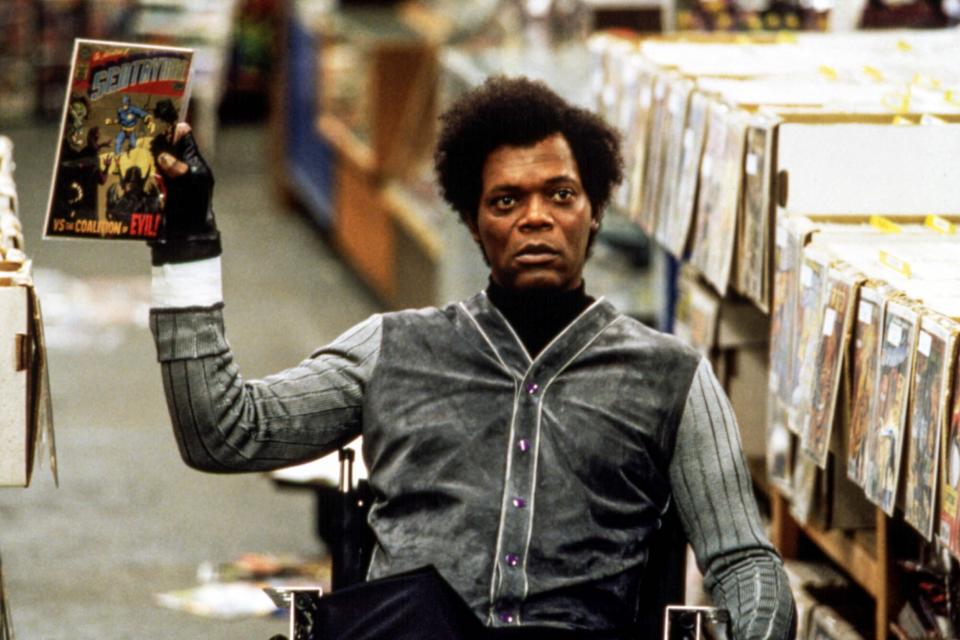
Related content:

